Are you struggling with how to drill through rebar in concrete? Well, look no further! This article is here to give you a step-by-step guide on the best techniques to tackle drilling through rebar with ease. With the right knowledge, tools, and materials, nothing should stand in your way when it comes to drilling through concrete with rebar. Read on for savvy tips about choosing drills, bits, and other materials as well as safety precautions to take while working on this project.
How to Drill through Rebar in Concrete: Step-by-Step Guide?
Put On Your Safety Gear

Mark the Spot Where You Want to Drill
Using a felt-tip marker, mark the spot where you want to drill through the rebar in concrete. To ensure that you have plenty of clearance for drilling into the hole, make sure that it is at least 1/2 inch from the edge of the rebar.
Select The Right Bit Type For The Job
The type of bit you select for this job will depend on what kind of material you plan on drilling into: Concrete, Steel Rebar, or both. If you are only drilling into concrete, then a masonry bit will do the job. If you’re drilling through concrete and rebar, however, then a carbide-tipped drill bit is your best choice for getting the job done right.
Secure The Bit In Your Drill
Once you’ve selected the proper bit for the job, secure it firmly in your drill using either a chuck key or an adjustable wrench. Make sure that the bit is locked in tightly so that it won’t slip out when you start drilling.
Start Drilling At A Low-Speed Setting
When drilling through a steel rebar with an electric drill, it’s important to start at a low-speed setting. This will prevent the bit from overheating and ensure that you don’t break it. As you drill, slowly increase the speed as needed to effectively cut through the rebar.
Cut the Rebar
Once you’ve drilled through the rebar, use a pair of bolt cutters or a reciprocating saw to finish cutting it. To do this, put the cutting tool on either side of the rebar and squeeze or saw back and forth until it is completely cut through.
Clean Up The Area
Once you’ve finished drilling and cutting through the rebar, clean up the area around your work site to make sure no hazardous materials are left behind. This will ensure that everyone in the area remains safe from any potential hazards [1].

What are the Best Bits for Drilling through Rebar?
Diamond-Core Bits
Diamond-core bits are the best option for drilling through rebar, as they are designed to cut through hard materials like metal and reinforced concrete. Diamond-core bits come in a variety of sizes and can be used with both handheld power drills and drill presses. They have an extremely long life span and can easily handle heavy-duty jobs. Additionally, diamond core bits produce clean, accurate cuts when drilling through rebar.
SDS Plus Drill Bits
SDS Plus drill bits are also a great choice for drilling through rebar due to their strength, durability, and ability to hold up under pressure. SDS Plus drill bits feature a unique shank that is compatible with SDS Plus rotary hammers or SDS Plus drill drivers. These bits are designed to be extremely strong and versatile, making them ideal for performing heavy-duty tasks like drilling through rebar.
Carbide-Tipped Bits
Carbide-tipped drill bits are also a good choice for drilling through rebar as they are made from carbide, which is a very hard metal that can easily be cut through tough materials such as steel. Carbide-tipped drill bits come in various sizes and shapes and can be used with both handheld power drills and drill presses. They produce clean, precise cuts when drilling through rebar and have an extended life span due to their durable carbide construction.
Masonry Bits
Masonry bits are also suitable for drilling through rebar, as they are designed to cut through harder materials such as steel and concrete. Masonry bits come in many different sizes and shapes and can be used with both handheld power drills and drill presses. They are very strong and durable, producing clean, precise cuts when drilling through rebar. Additionally, masonry bits have a long life span due to their hardened steel construction.
Rebar Cutter Bits
Rebar cutter bits are specially designed for cutting through rebar. These bits are made from hardened steel and feature specialized sharp cutting edges that enable them to easily cut through tough materials such as steel. Rebar cutter bits come in various sizes and shapes and can be used with both handheld power drills and drill presses. They provide clean, precise cuts when drilling through rebar and have an extended life span due to their durable construction. Additionally, these bits make quick work of any job involving drilling through rebar.

Steel Twist Bits
Steel twist bits are also a great option for drilling through rebar. These bits feature a twisted design that enables them to easily cut through tough materials such as steel without producing any burrs or chips. Steel twist bits come in various sizes and can be used with both handheld power drills and drill presses. They produce clean, precise cuts when drilling through rebar and have an extended life span due to their durable construction. Additionally, these bits are very easy to use and make quick work of any job involving drilling through rebar [2].
What to avoid when drilling through rebar in concrete?
Avoid using a hammer drill or regular masonry bit to drill through rebar in concrete. Hammer drilling and regular masonry bits are designed for softer materials like brick, stone, plaster, and drywall that does not contain metal reinforcement such as rebar.
Also be sure you know where all the rebar is located before attempting to drill. If possible use a metal detector to detect any rebar that might be present in the area you plan on drilling. It is also important to avoid using long/deep drills with large diameter bits when drilling through reinforced concrete as this could increase the risk of encountering rebar.
Finally, make sure you are using a carbide-tipped masonry bit when drilling through reinforced concrete. Carbide-tipped bits are designed specifically for use in hard materials like concrete and will stand up to the wear and tear associated with this type of work better than standard masonry bits. Be sure to apply plenty of pressure as you drill, but do not force it; if the bit begins to struggle or slip, stop and switch to a new one before continuing your work.
These tips should help ensure that you get the job done safely and properly when attempting to drill through rebar in concrete.

Safety rules for drilling concrete
- Always wear appropriate protective gear including a hard hat, steel toe boots, gloves, and goggles when drilling concrete.
- Make sure the drill bit is sharp and undamaged before drilling into concrete to reduce the risk of injury or damage to the material being drilled.
- Avoid using masonry bits that are too large for the hole you’re trying to make as this could cause serious damage to property and injury to personnel.
- When drilling in confined spaces, use breathing apparatus such as a dust mask or respirator so that harmful particles don’t enter your respiratory system while working with concrete dust.
- Be aware of any underground cables or pipes before you begin drilling as these could be damaged in the process.
- Always use a drill guide to ensure that your hole is drilled straight and true, as uneven holes can compromise structural integrity and cause damage or injury.
- Use diamond-tipped masonry bits when drilling concrete to reduce the amount of time it takes to complete the job and also to reduce dust production from the concrete being drilled.
- If you are working with an extension cord, make sure that it is properly rated for outdoor use if you are using it outdoors, and always keep it away from water sources such as pools or ponds while drilling to avoid electrocution or shock hazards.
- Make sure all power tools are unplugged when not in use and always store them properly according to the manufacturer’s instructions.
- When you have finished drilling into concrete, inspect your work for any damage or potential hazards before leaving the area. This will help ensure safety and reduce the risk of accidents or injury in the future.

FAQ
What is the best drill bit for rebar concrete?
The best drill bit for rebar concrete is a carbide-tipped masonry bit. These bits are specifically designed for drilling through thick and dense materials like rebar-reinforced concrete, so they will provide the most reliable results. Additionally, they feature an extended life span over traditional steel drill bits, meaning you can use them more times without having to replace them. They also generate less heat than regular steel bits, meaning there is less risk of damage to the material being drilled into. For best results, make sure to lubricate your drill bit before use. This will help it last longer and avoid any potential damages caused by friction or overheating. It’s also important to ensure that your drill bit is the right size and type for the job, as using the wrong bit could lead to dangerous results.
What drill bit will go through the rebar?
A carbide-tipped masonry bit is the best choice for drilling through rebar. These bits are specifically designed to cut through dense materials like reinforced concrete, so they can easily handle the job of cutting through rebar. Additionally, carbide-tipped masonry bits generate less heat than regular steel drill bits, reducing the risk of damage to your material. It’s important to make sure that you select a drill bit with the right size and type for your application, as using the wrong one could lead to dangerous results. Additionally, be sure to lubricate your drill bit before use to reduce friction and extend its lifespan.
What is the difference between masonry and concrete drill bits?
Masonry drill bits are specifically designed for drilling through dense materials like tile, brick, and concrete. These bits feature a carbide-tipped tip that helps reduce friction and generate less heat than regular steel drill bits. Additionally, masonry drill bits have an extended lifespan compared to regular steel drill bits. Concrete drill bits, on the other hand, are specifically designed to cut through reinforced concrete and materials that contain rebar or metal mesh reinforcement. These drill bits also feature a carbide-tipped tip but they are made from special tungsten alloy which is better able to withstand intense temperatures and pressure while drilling.
Is it OK to core drill through rebar?
Yes, it is okay to core drill through rebar as long as you use the right drill bit. Core drilling involves drilling a large hole in a material to remove a section of concrete or other material. To do this safely, you must use a carbide-tipped masonry bit. This type of bit is specifically designed for drilling through dense materials like reinforced concrete and can easily handle the job of cutting through rebar. Additionally, make sure that your drill bit is the right size and type for the job, as using the wrong one could lead to dangerous results. Furthermore, be sure to lubricate your drill bit before use to reduce friction and extend its lifespan.
What bits should I use for reinforced concrete?
For drilling into reinforced concrete, you should use a carbide-tipped masonry bit. These bits are specifically designed for drilling through thick and dense materials like rebar-reinforced concrete, so they will provide the most reliable results. Additionally, they feature an extended life span over traditional steel drill bits, meaning you can use them more times without having to replace them. They also generate less heat than regular steel bits, meaning there is less risk of damage to the material being drilled into. For best results, make sure to lubricate your drill bit before use. This will help it last longer and avoid any potential damages caused by friction or overheating. It’s also important to ensure that your drill bit is the right size and type for the job, as using the wrong bit could lead to dangerous results.
Should I use a hammer drill or an impact driver when drilling through concrete?
It depends on the type of work you are doing. If you are drilling into a light-duty material like wood or drywall, then an impact driver is the best choice. An impact driver uses high torque force to drive screws and drill holes into materials quickly and efficiently. On the other hand, if you are drilling into harder materials like concrete, then it is recommended that you use a hammer drill. A hammer drill uses rotational force combined with hammering action to cut through tough materials like reinforced concrete with ease.
Why is it important to use the right drill bit for concrete?
It is important to use the right drill bit for concrete because using the wrong type of bit can cause unsafe results. Concrete is a dense and hard material, so if you are using a regular steel drill bit, there is an increased risk of damage to the material being drilled due to friction or overheating. Additionally, standard steel bits will not last as long in these types of materials, meaning that you will need to replace them more often. However, carbide-tipped masonry bits are specifically designed for drilling through thick and dense materials like reinforced concrete and generate less heat than regular steel bits. This means that they are better able to withstand tough drilling conditions and provide reliable results without risking damage to your material.
Useful Video: Drilling Concrete with Rebar with this Special Bit.
Conclusion
Drilling through rebar in concrete is a difficult and time-consuming process. Although the best way to drill through rebar in concrete is with an electric or rotary hammer drill, other methods can also be employed. By using specialized tools such as diamond core drill bits, carbide-tipped masonry bits, and even blowtorches to heat up the rebar, it’s possible to complete drilling projects without having to resort to more expensive equipment. With proper safety precautions taken, as well as patience and persistence in tough spots, anyone can find success when it comes to drilling through rebar in concrete. Regardless of what method you choose for drilling through rebar in concrete, it’s important to remember that all processes require dedication and experience to be successful. Taking all of these factors into consideration, it’s possible to complete a drilling job with confidence and satisfaction.
References
- https://handyworkshop.com/how-to-drill-through-rebar-in-concrete/
- https://www.ehow.com/info_12184279_concrete-drill-bits-through-rebar.html


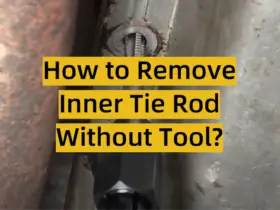


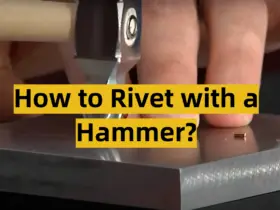

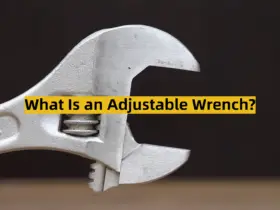


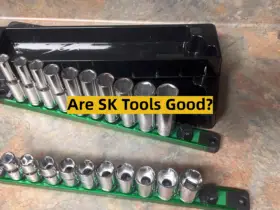


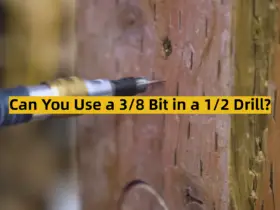
Leave a Reply